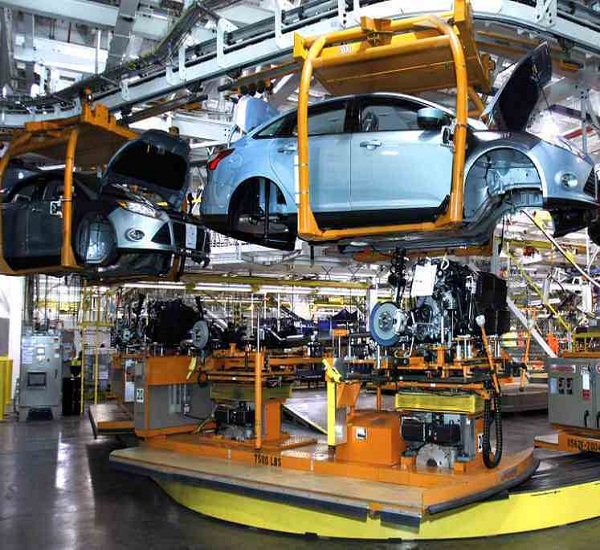
In a bid to make Africa a manufacturing powerhouse, the African Development Bank (AFDB) has proposed that the continental free trade agreement, CFTA, moves beyond trade to industrial manufacturing zones that create jobs for African citizens.
Speaking at the AFDB annual meetings held in Accra Ghana, the President of the Bank Mr. Akinwunmi Adesina suggested that the African region should not just be a trade region, but also a region where more value-added manufacturing products are traded.
In his words, “I think African Continental free trade (AFCTA) should not just be a trade region, but an industrial manufacturing zone where we trade value-added manufacturing products from national and regional value chains that are competitive globally”.
Register for Tekedia Mini-MBA edition 19 (Feb 9 – May 2, 2026): big discounts for early bird.
Tekedia AI in Business Masterclass opens registrations.
Join Tekedia Capital Syndicate and co-invest in great global startups.
Register for Tekedia AI Lab: From Technical Design to Deployment (next edition begins Jan 24 2026).
He stated that the AFCTA should drive the creation of zones that will offer infrastructures, facilities, and incentives that drive manufacturing in the continent as it is done in Asia and South America to create jobs. He further disclosed that the AFDB is working to ensure that Africa transitions to sustainable energy that can drive factories to drive manufacturing. Mr. Akinwunmi revealed that 86 percent of AFDB investments in power generation will go into renewable energy.
This is indeed a highly commendable initiative from Mr. Akinwunmi to help countries on the African continent to tap into the $24billion liquified natural gas project, that will enable the countries in the region to power factories to drive manufacturing. Great to see that they are walking the talk in ensuring that Africa transitions into a manufacturing hub.
Using Nigeria as a case study, over the last years, there have been efforts to make the country the preferred manufacturing hub in West Africa, but such efforts have not produced any tangible results. The Nigerian economy has been badly affected due to the country’s import-dominated commodities.
Although in 2014, the Nigerian Industrial Revolution Plan (NIRP), was launched to make the country the preferred manufacturing hub in West Africa, meanwhile, the initiative was said to have struggled to meet its objectives, as the oil sector still accounted for 65% of the country’s revenue with almost half of the country’s population still living in poverty.
Nigeria for a long time has been ravaged by the high rate of unemployment which has affected the nation’s economy. According to the International Monetary Fund IMF, it suggests that Nigeria needs to create five million jobs per annum over the next 10 years in order to close its unemployment gap.
With the failure of the NIRP plan, it is ideal for the government to implement a new strategy to ensure that the nation becomes a preferred manufacturing hub in West Africa. A close look at developed or developing countries, one will observe that they are establishing industries which have been pivotal to the growth of their economy.
Lack of industrialization will no doubt leave a country underdeveloped. The creation of industries is not just beneficial to the company as it equally benefits the country as a whole. The gross domestic product of any country experiences a significant rise with the introduction of industries into the economy.
That is to say, the more goods that are produced in a country, the more the country’s economy blossoms. Nigeria has been faced with the habit of importation of goods and commodities which is not good for the economy, as it has also devalued the naira.
It’s high time the Nigerian government moves to create industries that will manufacture goods for export, to increase the country’s revenue, and also the high rate of unemployment will be drastically reduced because industrialization necessitates the need for human labor.



